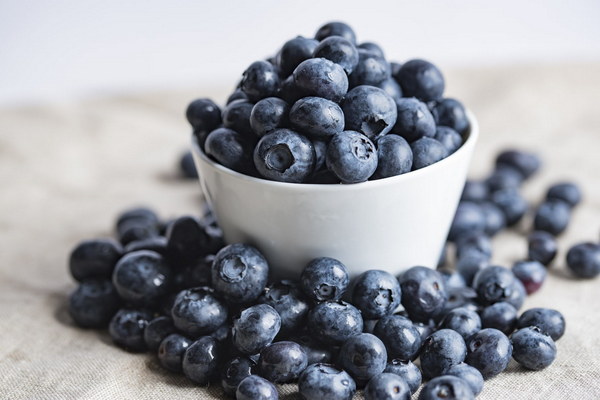Nurturing Young Ones A Comprehensive Guide to Autumn Nutrition for Children
As the vibrant hues of autumn paint the landscape, it's also a season of change, a time when children's bodies and minds need extra care and nourishment. Autumn nutrition is crucial for children's growth and development, and with the right approach, parents can ensure their little ones stay healthy and energized. Here's a comprehensive guide to help you navigate the world of autumn nutrition for children.
Understanding Autumn Nutrition Needs
Autumn brings cooler temperatures and shorter days, which can affect children's appetites and energy levels. It's important to recognize that children's nutritional needs can change with the season. They require more energy to stay warm and active, and their immune systems may need a boost to fight off seasonal colds and flus.
Balanced Meals: The Foundation of Autumn Nutrition
A balanced diet is key to maintaining good health during the autumn season. Here are some essential components:
1. Carbohydrates: Whole grains, such as brown rice, quinoa, and whole-grain bread, provide sustained energy. Oats, a popular autumn breakfast choice, are also rich in fiber and beta-glucans, which can support the immune system.
2. Protein: Lean proteins like chicken, turkey, fish, beans, and lentils help build and repair tissues. Eggs are a great source of protein and can be prepared in various ways to keep meals interesting.
3. Fruits and Vegetables: Autumn is a season of abundant produce, with a wide variety of fruits and vegetables available. Encourage your children to eat a colorful array of fruits and vegetables, which provide essential vitamins, minerals, and antioxidants.
4. Healthy Fats: Avocados, nuts, seeds, and olive oil are excellent sources of healthy fats, which are important for brain development and overall health.
Seasonal Superfoods
Certain foods are especially beneficial during the autumn months:
1. Apples: High in fiber and vitamin C, apples are a great snack or addition to meals. They can also be used to make healthy desserts.
2. Pumpkins: This versatile vegetable is rich in beta-carotene, which is converted into vitamin A, essential for immune function and vision.
3. Ginger: Known for its anti-inflammatory properties, ginger can be added to smoothies, teas, or soups to boost the immune system.
Hydration: Essential for Autumn Health
As the weather cools, children may not feel as thirsty. However, hydration is still crucial. Encourage them to drink plenty of water, herbal teas, or broths, especially after playing outside.
Boosting Immune System
The immune system is particularly vulnerable during autumn. Here are some strategies to support it:
1. Probiotics: Foods like yogurt, kefir, and sauerkraut contain probiotics, which can help maintain a healthy gut and strengthen the immune system.
2. Vitamin D: Exposure to sunlight is essential for vitamin D synthesis, but it can be limited during the colder months. Consider vitamin D supplements, especially for children who spend less time outdoors.
3. Zinc: This mineral is vital for immune function and wound healing. Good sources of zinc include nuts, seeds, and legumes.
Healthy Habits for Autumn

In addition to nutrition, healthy habits play a significant role in children's autumn well-being:
1. Regular Sleep: Ensure children get enough sleep to support their immune system and overall health.
2. Physical Activity: Encourage outdoor play to help children stay warm, active, and healthy.
3. Stress Management: Help children manage stress through activities like yoga, meditation, or reading.
By focusing on a balanced diet, seasonal superfoods, hydration, and healthy habits, parents can help their children thrive during the autumn season. Remember, the key to autumn nutrition is variety and moderation, so let your little ones enjoy the season's bounty while nourishing their bodies and minds.









